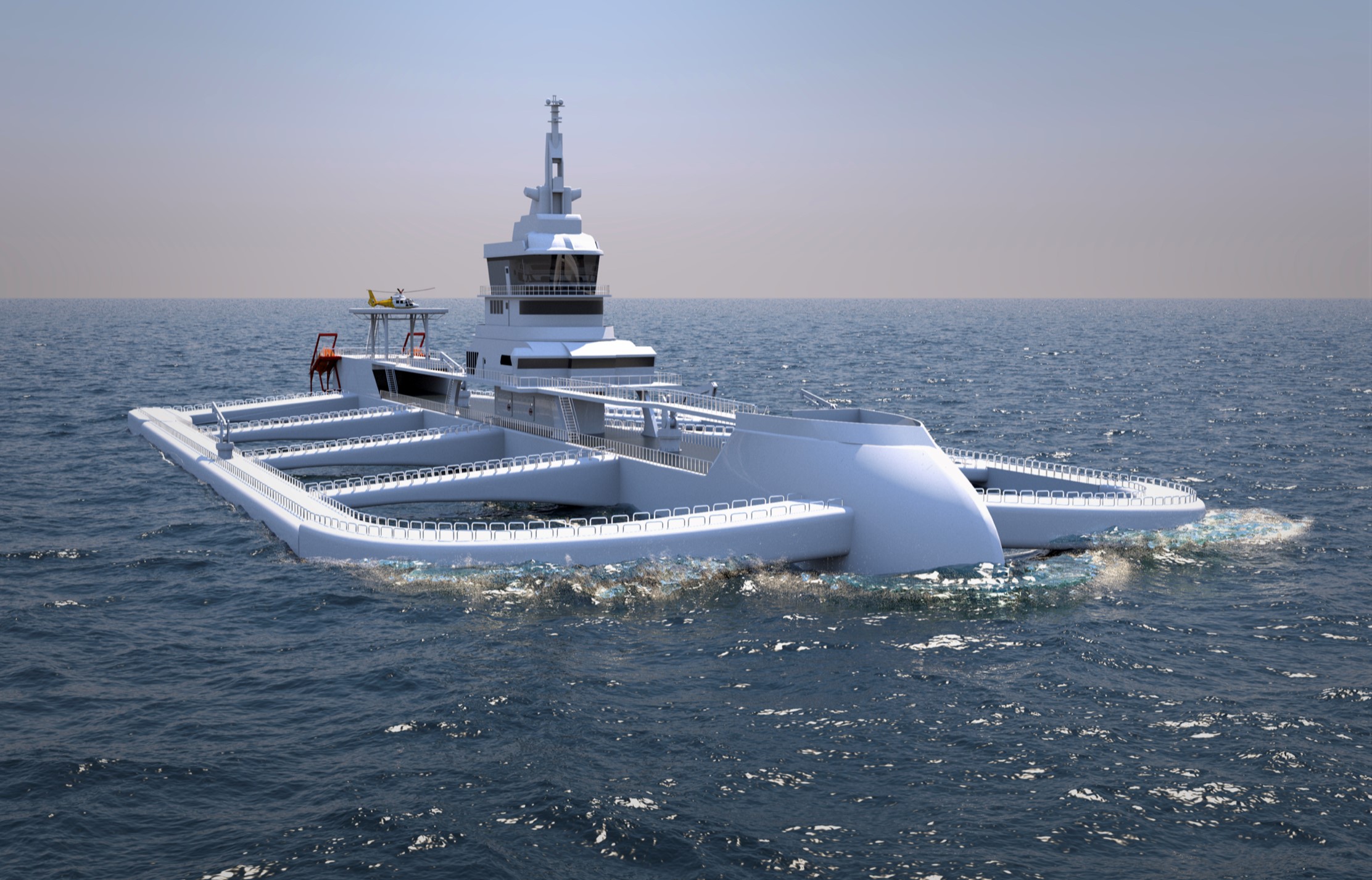The Ocean Ark, a design from Chile for a multi-hull self-propelled vessel that would raise fish in copper cages, has been approved in principle by the ship classification society RINA.
The 558'x210' vessel is being developed by Ocean Arks Tech of Chile (OATECH) in accordance with RINA Rules and Marpol, Solas and IMO regulations, according to a statement by RINA.
“The Ocean Ark vessel delivers a new approach to fish farming and is set to revolutionize the industry by dramatically improving fish health, crew comfort and the industry’s image,” according to RINA.
As a mobile fish production platform, the Ocean Ark can avoid some of the hazards of ocean aquaculture – and also deliver up to 4,000 metric tons of product to markets, according to the designers.
“Deploying the Ocean Ark away from marine heatwaves, algae blooms and storms – aquaculture’s three Achilles’ heels – would produce higher quality protein and increase world fish production without increasing pressures on fish stocks and coastal habitats.”
“Sustainability is a core strategic pillar at RINA, but this is not just about reducing carbon emissions,” said Patrizio Di Francesco, RINA’s marine principal engineer for northwest Europe. “A sustainable food production chain is also needed to supply an increasing global demand for nutrition. We believe aquaculture in the open sea is one solution that will help for the future.”
Artificial intelligence will assist operation of the low-emissions trimaran, which features “self-cleaning fish cages of copper help secure fish health and welfare,” according to RINA. In all the mobile pen vessel will have a capacity of 4,000 tons of biomass.
Financing is in place for several vessels and memoranda of understanding have been signed to build Ocean Arks at shipyards including China Merchants Industry holdings, Tersan and CIMC Raffles.
The technology package allows “low-density production of healthier, higher-quality fish at lower costs than the offshore, land-based and coastal aquaculture systems now available,” according to RINA. “The Ocean Ark can operate near Asian, U.S. and EU consumer markets for a major drop in transport emissions.”
Ocean Ark Tech of Chile works with and its strategic ally, U.K-based Ocean Sovereign, with a goal to help aim to help feed the earth’s growing population in line with the UN’s 2050 Food Security Challenge.
OATECH founder Rodrigo Sanchez Raccaro won Chile’s national innovation Award, the Ibero-American Innovation Honour. Raccaro’s drawings gave rise to the Ocean Ark, and he invited the notable industry pioneers and thinkers that now form the Ark team.
Among them are Cristino Stange, Héctor Ruiz and Andrés Fuentes, former Chilean fish-farming CEOs and entrepreneurs, tech innovators for the worldwide industry and former officers of the Chilean navy.




